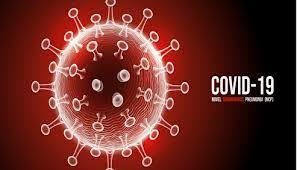Coronavirus global toll rises to 8,63,679

The novel coronavirus has killed at least 8,63,679 people since the outbreak emerged in China last December, according to a tally from official sources compiled by AFP at 1100 GMT on Thursday.
At least 2,60,74,140 cases of coronavirus have been registered. Of these, at least 1,70,71,200 are now considered recovered.
On Wednesday, 5,944 new deaths and 2,65,250 new cases were recorded worldwide. Based on latest reports, the countries with the most new deaths were Brazil with 1,184 new deaths, followed by the United States with 1,080 and India with 1,043.
The United States is the worst-hit country with 1,85,752 deaths from 61,15,030 cases. At least 22,31,757 people have been declared recovered.
After the US, the hardest-hit countries are Brazil with 1,23,780 deaths from 39,97,865 cases, India with 67,376 deaths from 38,53,406 cases, Mexico with 65,816 deaths from 6,10,957 cases, and Britain with 41,514 deaths from 3,38,676 cases.
Latin America and the Caribbean overall has 2,82,980 deaths from 75,14,827 cases, Europe 2,16,845 deaths from 40,61,430 infections and the United States and Canada 1,94,923 deaths from 62,44,721 cases.
Asia reported 1,00,879 deaths from 54,27,187 cases, the Middle East 37,014 deaths from 15,26,761 cases, Africa 30,316 deaths from 12,69,758 cases, and Oceania 722 deaths from 29,460 cases.
The Trump administration has urged US states to get ready to distribute a potential Covid-19 vaccine by November 1 — two days before the presidential election.
Dallas-based wholesaler McKesson Corp. has a deal with the federal government and will be requesting permits to set up distribution centres when a vaccine becomes available.
‘The normal time required to obtain these permits presents a significant barrier to the success of this urgent public health programme,’ Robert Redfield, director of the Centres for Disease Control and Prevention, told states in an August 27 letter.
‘CDC urgently requests your assistance in expediting applications for these distribution facilities.’
Redfield asked states to consider waiving requirements that would ‘prevent these facilities from becoming fully operational by Nov 1, 2020.’
The CDC provided states with documents giving details of a vaccine rollout plan, adding that they would either be approved as licensed vaccines or under emergency use authorisation.
Recipients would probably require a second ‘booster’ dose, a few weeks after the first, according to the documents.
‘Vaccine and ancillary supplies will be procured and distributed by the federal government at no cost to enrolled Covid-19 vaccination providers,’ say the documents, which also went to New York City, Chicago, Houston, Philadelphia and San Antonio.
Priority will be given to essential workers, national security officials, seniors and members of vulnerable racial and ethnic groups, according to The New York Times.
Three Western drug makers are progressing with their Phase 3 clinical trials, involving tens of thousands of participants.
The three are AstraZeneca, which is partnering with Oxford University in England; Moderna, collaborating with the US National Institutes of Health; and the Pfizer/BioNTech alliance.
By the nature of the trials, it is difficult to predict when reliable results will emerge.
Half of the participants in such trials receive an experimental vaccine, while the other half are given a placebo.
Under normal procedures, test administrators must wait — probably for months — to see whether there is a statistically significant difference in the infection rate of the two groups.
The US Food and Drug Administration however has raised the possibility that a vaccine might be given emergency approval before the end of trials.
A request for such extraordinary approval would have to come from the vaccine developer, FDA chief Stephen Hahn told the Financial Times in an interview published Sunday.
The FDA has faced mounting criticism from the medical community that it is bowing to political pressure from president Donald Trump, who has been pushing hard for a vaccine, saying one might be ready before the election.
In March, the FDA gave emergency authorisation for the use of hydroxychloroquine to treat Covid-19 after Trump repeatedly praised its use; the authorisation had to be withdrawn in June after serious side effects emerged.
AFP



















